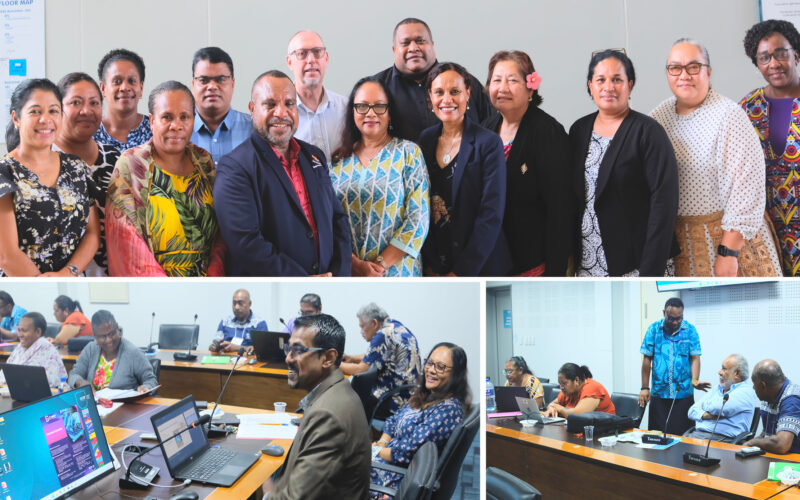
The University of the South Pacific’s (USP) Centre for Flexible Learning (CFL) recently teamed up with the Commonwealth of Learning (COL) to host a three-day workshop on micro-credentials in Fiji from 11 – 14 March 2024.
This event was made possible with the support of the Ministry of Foreign Affairs and Trade, New Zealand (MFAT), represented by Ms Vena-Liz Upton. She noted MFAT’s focus on ensuring support for Pacific frameworks and ensuring that the region’s voice is heard, mentioning key issues that included managing change, inclusivity, teaching quality and climate change adaptation. An example of this is USP’s new Climate Change Knowledge Hub.
Dr Tony Mays, Director: Education, and Dr Betty Ogange, Education Specialist: Teacher Education from COL led the workshop, along with Ms Terry Neal, an independent expert from New Zealand. Dr Rajni Chand, Director of CFL, was the principal organiser and resource person for the workshop. Dr V. Balaji, Vice President COL, welcomed those present virtually and provided a brief background regarding the breadth and impact of the project.
The workshop brought together 35 participants from 12 countries throughout the Pacific region, including COL Focal Points (senior officials or academics nominated by ministries of education) and academic leaders from USP, the National University of Samoa and the Tonga National University.
On the first day of the workshop, Dr Mays led a session that delved into the various types and formats of micro-credentials, including digital badges, certificates, and nano-credentials. It was emphasised that for a micro-credentialing framework to be effective at institutional, national, and regional levels, there must be a consensus on the terminology, as well as on the standards for quality, assessment criteria, and evidence required for completion. On the subsequent day, Dr Ogange guided a discussion on the challenges and opportunities associated with integrating micro-credentials into the qualification frameworks of the University of the South Pacific (USP), addressing considerations at institutional, national and regional scales.
The workshop aimed to enhance understanding and appreciation of the potential benefits that micro-credentials offer for promoting flexible and open education in the Pacific region. Moreover, it sought to highlight their role in facilitating employment and professional development opportunities. The COL-USP workshop also served as a platform for COL Focal Points nominated by Ministries of Education to participate in discussions about micro-credentials and engage in various activities, including a coordination meeting of the Ministry of Foreign Affairs and Trade (MFAT)-funded Partnership for Open, Distance and Flexible Learning in the Pacific (PODFLP) project. This meeting focused on sharing findings from the recent mid-term project evaluation, outlining planned activities for the final year, and introducing the upcoming end-term evaluation.


